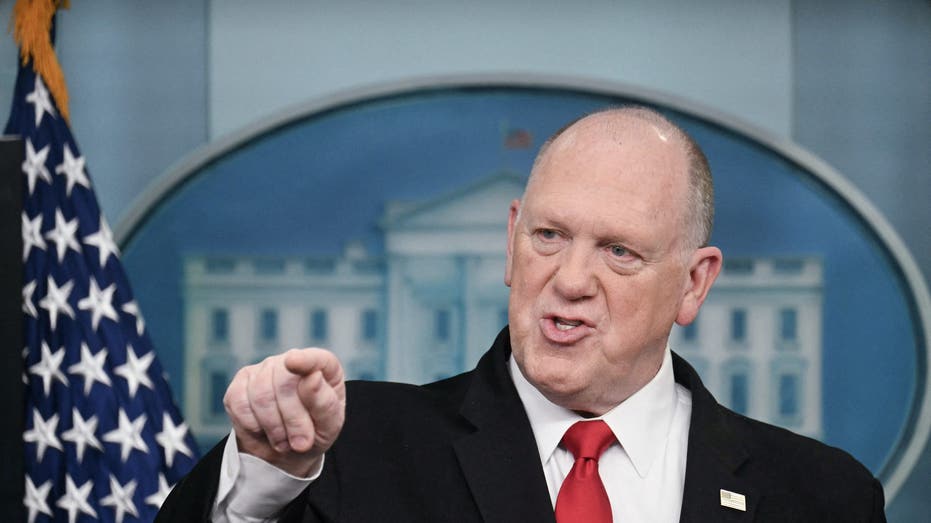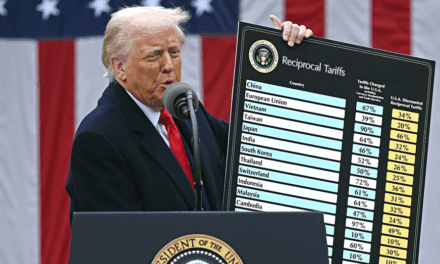In a recent statement that has ignited contentious debate, former Immigration and Customs Enforcement (ICE) Director Tom Homan criticized the Democratic Party for purportedly siding with individuals he described as a “wife beater.” This allegation emerged amidst intensified scrutiny concerning the background of a deported migrant, raising questions about the implications of immigration policy and its societal consequences.
The backdrop for Homan’s remarks can be traced back to the ongoing discussions surrounding the complexities of immigration enforcement and how it intersects with public safety. In his statements, Homan specifically referred to a case involving a Mexican national who had been previously deported due to multiple legal infractions. Notably, one of these offenses included allegations of domestic violence, prompting Homan to direct his ire toward Democratic lawmakers.
Homan emphasized that, while he respected differing political opinions, he found it deeply troubling that some Democrats seem to advocate for individuals with violent criminal histories. He stated, “It is beyond comprehension that anyone would defend a person who has been accused of domestic violence. This is a clear-cut issue of public safety.” His assertion was part of a broader critique of what he characterizes as a lenient approach toward immigration enforcement espoused by some members of the Democratic Party.
The case in question has become a focal point in the national dialogue regarding immigration reform and law enforcement priorities. The individual in this situation was arrested and subsequently deported after being charged with various crimes, including charges related to domestic abuse. According to Homan, the dire implications of such cases underline the necessity for robust enforcement of immigration laws. He contends that allowing such individuals to remain in the country poses a threat to community safety.
Furthermore, Homan’s comments come at a time when the Democratic Party has been vocal about the need for reform in America’s immigration system, advocating for pathways to citizenship and humanitarian protections for certain migrant populations. Critics of the Democratic stance argue that such policies might inadvertently protect individuals with violent or criminal backgrounds, complicating the efforts to maintain safe communities.
Many Democrats have pushed back against Homan’s assertions, arguing that these claims are sensationalized and misrepresent their stance on immigration policy. They argue that the party’s focus on comprehensive immigration reform inherently includes mechanisms for accountability and does not equate to defending domestic violence. “Our advocacy for immigrants is rooted in human rights,” stated a Democratic representative. “It is about providing protection and pathways for those fleeing violence and persecution, not shielding criminals.”
Homan, however, remains steadfast in his position, emphasizing that it is essential for lawmakers to prioritize the safety of American citizens above all else. He called for stricter immigration enforcement and stronger measures to vet individuals seeking to enter or stay in the United States. “We cannot turn a blind eye to the potential dangers some individuals pose,” he insisted, underscoring what he perceives as a paramount obligation of elected officials to uphold the rule of law.
The clash over immigration policy highlights a broader ideological divide in American politics. On one side, there are those who argue for stringent enforcement measures and prioritizing public safety, while on the other side, advocates champion compassionate approaches that seek to address the humanitarian aspects of immigration. The nuances of these discussions often get lost in the heated rhetoric as both sides attempt to sway public opinion.
As this dialogue continues, the implications for local and national policy remain significant. Policymakers face the dual challenge of addressing the complexities of immigration while ensuring the safety and security of their constituents. Failures on either end could have lasting consequences, affecting not just the individuals involved but communities across the nation.
Moreover, the public discourse surrounding these issues is indicative of the polarized political landscape in the country. Amidst escalating tensions, Homan’s accusations serve to galvanize further scrutiny of immigration policy and its real-world impacts. Many observers note that the stakes for both political parties are high, particularly as the nation heads toward future elections, where immigration is likely to be a prominent issue.
The spotlight on such individual cases also raises questions about the adequacy of existing immigration laws and the procedures in place for monitoring deported individuals who return to the U.S. In this specific instance, critics argue that a more thorough screening process and better cooperation among law enforcement agencies state-wide and federally might prevent individuals with dangerous pasts from entering communities. The call for comprehensive immigration reform is growing louder, though the means of achieving it remains a source of contention.
In defense of their approach, many Democrats cite the importance of balancing enforcement with humanity, arguing that it is critical to consider the circumstances that lead individuals to migrate to the U.S. They highlight that many are fleeing violence, persecution, or hardship in their home countries, and that the U.S. has a long-standing tradition as a refuge for those in need.
The conversations sparked by Homan’s accusations are symptomatic of a larger national discourse surrounding immigration and safety. Both sides of the argument have passionate advocates, and the challenge will be finding common ground that respects human rights while also ensuring the safety of American communities.
As the nation continues to grapple with these complex issues, the case of the deported migrant will likely serve as a point of reference in ongoing debates. It embodies the broader challenges facing law enforcement, policymakers, and communities alike as they strive to navigate the sometimes fraught intersection of immigration and public safety.
Ultimately, the future of immigration policy in the United States may hinge on the ability of political leaders to bridge their differences and develop comprehensive strategies that prioritize both human rights and national security. The escalating political drama, as evidenced by Homan’s recent statements, suggests that clear solutions remain elusive as both parties continue to vie for influence over the direction of immigration policy.
While it remains to be seen how these discussions will evolve, one thing is clear: immigration issues will remain at the forefront of political discussions in the coming months, with strong opinions and divisive narratives shaping the national conversation.































